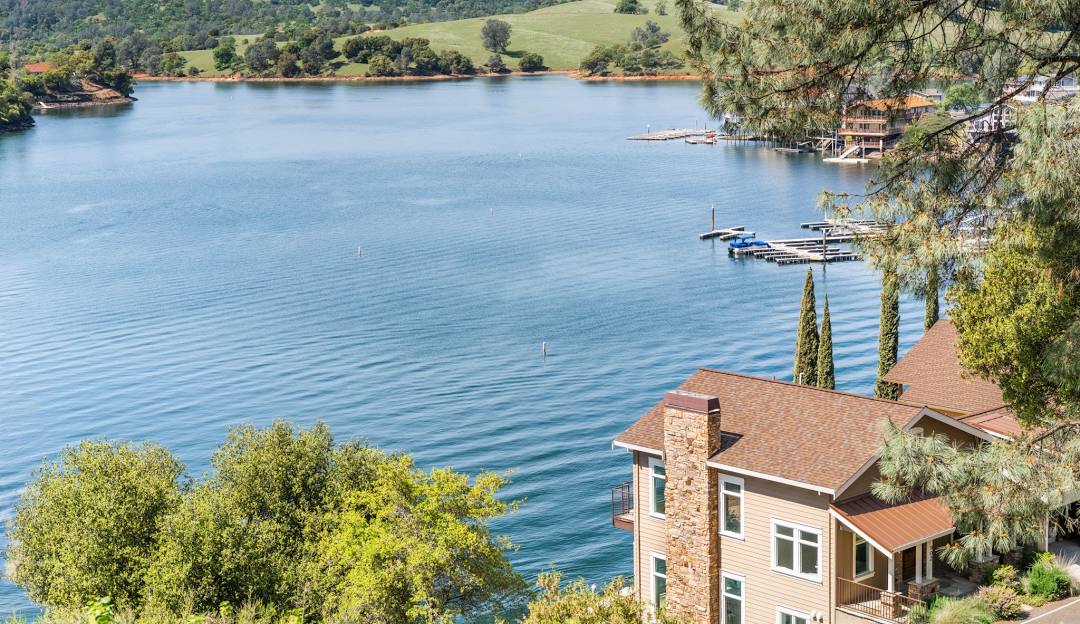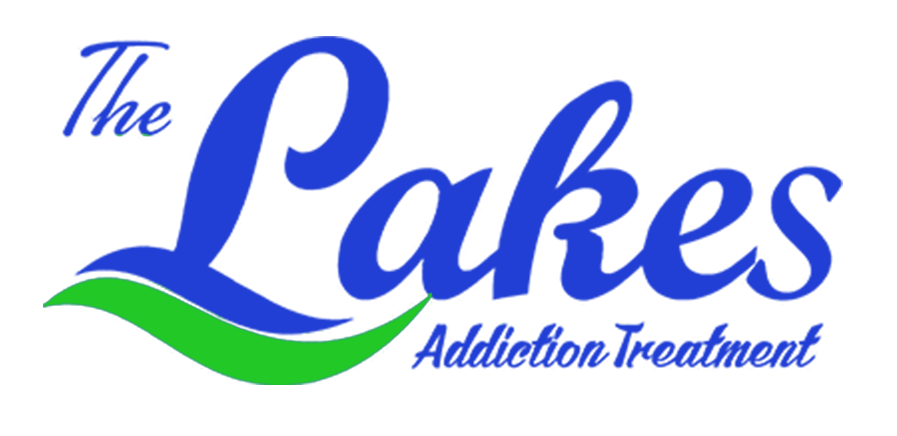Alcohol Rehab in Stockton
Alcohol Rehab for the People of Stockton, CA

Residential Alcohol Addiction Treatment Focused On Your Long-Term Recovery
Alcohol addiction, or alcoholism, is a complex disease that can be extremely difficult to beat without professional help. Whether you believe that your alcohol use has gotten out of control, or you are concerned about a loved one, you have already taken an important first step simply by visiting this website.
At The Lakes Treatment Center, we understand that getting help for alcohol abuse or addiction is never easy, but our team is here to guide you through the recovery process and help you on the road to long-term sobriety and healing. We offer an integrated residential treatment program for those struggling with alcoholism and co-occurring mental and behavioral health disorders.
Learn more about our alcohol rehab center in Stockton, including the treatments we offer to help manage withdrawal symptoms safely.
How Does Our Alcohol Rehab in Stockton Work?
Like other rehabs, including drug addiction rehab programs, alcohol rehab works best when it is tailored to the individual’s unique situation, needs, and goals. At The Lakes Treatment Center, we provide a range of alcoholism treatments that can be continually modified and adjusted as the client navigates the recovery process.
At our alcohol rehab center in Northern California, we believe in a whole-person approach that addresses each individual aspect of one’s overall wellbeing by providing comprehensive addiction treatment services.
Our Stockton alcohol rehab typically involves the following steps:
Initial consultation: Our admissions process begins with a complimentary consultation, either in person or over the phone. During this consultation, we can answer your questions and provide more information about our facility and our treatments.
Personalized assessment: Following the initial consultation, we provide a personalized assessment to determine the best treatment plan for you. During this assessment, our professional intake team evaluates a range of factors, from your current alcohol consumption to your general medical history and more.
Supervised detox: If necessary, we may recommend medically assisted detox. We provide safe, fully supervised alcohol detox services onsite at our treatment center. Our staff provides 24-hour support and, in some cases, can help ease the discomfort associated with detox with a personalized medication plan. The detox process is managed with professional oversight to ensure safety and comfort, addressing withdrawal symptoms while preparing individuals for subsequent treatment phases.
Therapy: A combination of individual and group therapy has been proven to be among the most effective methods of treating alcohol use disorder. Our alcohol rehab program in Stockton includes a range of therapies, from cognitive behavioral therapy to rational emotive behavioral therapy to mindfulness-based cognitive therapy to address addiction and its underlying causes. Inpatient treatment programs are available for those needing full-time residency and intensive care, providing a structured environment with round-the-clock support.
Dual diagnosis treatment: Often, alcohol abuse occurs alongside other mental and behavioral health disorders, such as post-traumatic stress disorder (PTSD), depression, anxiety, and bipolar disorder. The Lakes Treatment Center is licensed by the California Department of Health Care Services (DHCS) to provide treatment for those struggling with substance misuse and co-occurring disorders.
Life skills development: We provide our residents with the resources and tools they need to navigate sobriety outside of our facility. Our life skills development programs focus on relationship rebuilding, employment, education, nutrition, and physical activity, as well as managing triggers and preventing relapse.
Recreational activities: A big part of our Stockton alcohol rehab program involves engaging in recreational activities, both onsite and on nearby Lake Tulloch. We strive to help our residents develop healthy, positive hobbies as critical — but often overlooked — element of long-term sobriety.
Why Choose Our Alcohol Rehab in Stockton?
The Lakes Treatment Center offers personalized recovery programs, residential programs, and medically supervised detox as part of our comprehensive drug and alcohol rehab program in Stockton, making us the ideal choice for achieving long-term sobriety. This type of comprehensive treatment gives you access to a team of medical professionals who can provide individualized care, as well as support for one another.
Residential programs allow clients to focus on their goals without distractions from outside life, while detoxification helps clear the body of toxins that can build up in cases of severe alcohol addiction. With these additional services, you can gain further insight into the causes of addiction and develop strategies for maintaining sobriety after treatment.
Personalized Treatment Plans for Lasting Recovery
At The Lakes Treatment Center, we understand that every individual struggling with substance use disorder is unique and requires a personalized approach to treatment. Our alcohol addiction treatment program in Northern California is designed to address the underlying causes of alcohol addiction and provide comprehensive care to promote lasting recovery.
When you choose our alcohol rehab in Stockton, you can expect:
Individualized treatment: Our team of alcohol addiction specialists will conduct a thorough assessment to create a personalized treatment plan tailored to your specific needs and goals. We take into account factors such as your medical history, severity of addiction, and any co-occurring mental health disorders.
Evidence-based therapies: Our residential alcohol rehab in Stockton offers a range of evidence-based therapies to address the psychological, emotional, and behavioral aspects of alcohol addiction. These may include cognitive-behavioral therapy (CBT), dialectical behavior therapy (DBT), and motivational interviewing.
Supportive environment: Our treatment center provides a safe and supportive environment where you can focus on your recovery without distractions. Our compassionate staff is available 24/7 to offer guidance, encouragement, and support throughout your journey.
Holistic approach: In addition to traditional therapies, we incorporate holistic approaches such as yoga, meditation, art therapy, physical fitness, and activities at beautiful Lake Tulloch to promote overall well-being and help you develop healthy coping mechanisms.
Aftercare planning: We understand that recovery is a lifelong journey. At our alcohol rehab in Stockton, our team will work with you to develop a comprehensive aftercare plan to support your transition back into everyday life. This may include ongoing therapy, support groups, and relapse prevention strategies.
Take the first step towards a healthier, happier life free from alcohol addiction. Contact our alcohol rehab in Stockton today to begin your journey toward recovery.
What Is Alcohol Use Disorder?
Substance abuse, more commonly known as alcoholism, is a medical condition in which an individual feels a compulsive need to consume alcohol despite negative consequences. Typically, someone suffering from alcoholism will also exhibit signs of physical dependence and increased tolerance as well.
Drug and alcohol addiction occurs when a person requires more of a substance—in this case, alcohol—to achieve the same or similar effects they experienced when first using it. Dependence occurs when the individual begins to experience signs of withdrawal when not using the substance. Someone who needs to drink increasing amounts of alcohol to get “buzzed” or drunk has a higher tolerance; if they suffer from cravings, tremors, nausea, and/or other withdrawal symptoms when not drinking, they have a physical dependence on alcohol.
If you believe you may be suffering from alcohol use disorder, get in touch with out Stockton alcohol rehab center today.
What Are the Signs of Alcohol Misuse, Abuse & Addiction?
Because alcohol is both legal for those over the age of 20 and commonly consumed in the United States, it can be difficult to pinpoint when someone’s drinking has spiraled out of control. Many people think of alcoholism as an intense and obvious addiction characterized by 24/7 consumption and frequent blackouts. While this can certainly be the case, alcohol abuse is not always so obvious.
In fact, alcoholism is far more commonly a slippery slope. Someone may build tolerance through social drinking over a certain amount of time. They may be more likely to brush off potential warning signs if they frequently spend time with friends or family members who share similar drinking habits. In some addiction cases, simply wanting to cut back on alcohol consumption could indicate that a person is concerned about the level of control they have over their drinking.
If you are worried about your own drinking habits, ask yourself the following questions:
Does the majority of your social life revolve around alcohol?
Do you use alcohol to feel less anxious or more relaxed in social settings?
Do you usually or always continue drinking when you get home from a social event?
Does it take you a lot of alcohol or more alcohol than before to get drunk?
Is drinking alcohol your primary method of relaxing or relieving stress?
Have you thought about refraining from drinking but been unable to follow through?
Does your personality change when you are drunk?
Do you spend a significant amount of time thinking about drinking or getting drunk?
Are you frequently hungover/recovering from alcohol consumption?
Will you drink any type of alcohol you can get?
Have you had times where you ended up drinking more or for longer than you intended?
Have you avoided eating so that you could get drunker faster?
Do you feel irritable, depressed, anxious, or “antsy” when not drinking?
Have you experienced any changes in your sleep patterns or mood when not drinking?
Does your family have a history of drinking/alcoholism?
Do you feel a strong desire to keep drinking despite negative consequences?
Answering yes to some or most of these questions could indicate that your drinking has gotten out of control. Although it can be difficult to admit that you need help, doing so is the first step toward healing.
At The Lakes Treatment Center, we offer complimentary consultations to discuss what you can do next to pursue a better, healthier, and happier future. Learn more about our approach to alcohol rehab in Stockton by contacting our team directly.
Physical Symptoms of Alcoholism & Alcohol Withdrawal
Alcohol is toxic and, over time, it can have many negative effects on the body. Additionally, those struggling with alcohol abuse or alcoholism may experience highly unpleasant withdrawal symptoms when not drinking or consuming alcohol, causing them to feel a strong desire to drink more. Managing withdrawal symptoms is crucial to ensure a safer and more comfortable detox process.
Some of the physical symptoms of alcoholism include:
Excessive sweating
Shaking, especially in the morning
Tremors
Redness, particularly in the face
Diarrhea
Gastrointestinal issues
Weight gain or loss
Infections
Skin abscesses/sores
Unexplained injuries
Cirrhosis and other liver problems
Someone struggling with alcohol abuse may also become secretive about their drinking, or they may begin experiencing significant financial or interpersonal relationship problems. They are more likely to drink until blacking out and may be drunk or hungover most of the time.
Alcoholism is also characterized by withdrawal when alcohol is not being consumed. Withdrawal can be extremely uncomfortable and often has numerous physical, mental, and behavioral effects.
Some of the symptoms of alcohol withdrawal include:
Anxiety
Tremors or shaking
Nausea
Vomiting
Headache
Sweating
Insomnia
Hallucinations
Seizures
Confusion
High blood pressure
Racing heart
Fever
Delusions
Alcohol withdrawal can be very dangerous and may even be life-threatening. It is critically important that individuals suffering from moderate to severe alcohol abuse do NOT attempt to stop drinking entirely, or quit “cold turkey,” on their own. Rather, a medically supervised detox program may be required.
What Are the Benefits of Alcohol Rehab in Stockton?
Alcohol addiction will negatively affect your physical, mental, financial, and social health. The damage will only get worse as the addiction is allowed to persist without challenging it. Going through drug and alcohol treatment and rehabilitation can help you to turn your life around, though, and gradually undo the harm that has been done. It is never too late to start rehab to discover its benefits.
Our Stockton alcohol rehab makes the recovery process easier by providing support and guidance, along with personalized plans that are tailored to your needs. To ensure you have a fair chance at recovery and lasting sobriety, we offer a variety of services such as counseling, therapy, detoxification, relapse prevention, and aftercare.
Here are some benefits of our alcohol rehab center in Stockton:
Access to addiction experts such as therapists or counselors who specialize in addiction.
Personalized plans that focus on individual needs to maximize results
Supportive environment with peers who are also striving for sobriety
Increased understanding of addiction and strategies for coping with triggers
Opportunity for long-term lifestyle changes and healthier habits
Contact Our Alcohol Rehab in Stockton Today
At The Lakes Treatment Center, we understand the challenges individuals face when struggling with alcohol addiction. Our comprehensive alcohol rehab program in Stockton is designed to provide compassionate care and effective treatment to help you achieve lasting sobriety.
We believe in the importance of individualized care. Upon admission, each client undergoes a thorough assessment to determine their unique needs and challenges. Based on this assessment, our experienced team of addiction specialists creates a personalized treatment plan tailored to address specific goals and concerns.
Alcohol Rehab in Stockton FAQ
What should I do if someone is suffering from alcohol poisoning?
If someone is suffering from alcohol poisoning, call 911 and provide them with the details of their symptoms. Alcohol poisoning can be fatal or cause permanent injuries if untreated. If the person is unconscious and vomiting or will likely vomit, then you should roll them onto their side while you await emergency medical assistance.
How long can alcohol rehab in Stockton take?
Alcohol treatment can take anywhere from a few weeks to several months or even longer, depending on the severity of the addiction and the individual’s willingness and ability to commit to recovery. Treatment may include detoxification, counseling, therapy, relapse prevention, aftercare planning, and more. Our treatment plan is tailored to each person’s individual needs and goals, which can also help keep the plan moving, so recovery takes less time than you might have first expected.
Is rehab necessary to treat alcohol abuse?
Rehabilitation is highly recommended to treat alcohol abuse or dependency because it provides structure and support to begin the journey toward lasting recovery. It also provides a safe environment where people can focus on their recovery without triggers or influences that can lead them back into a cycle of addiction. Through therapy, counseling, and other evidence-based treatments, people in our alcohol rehab in Stockton receive skills they need to cope with their cravings and make healthy decisions in the future.
Will insurance cover my alcohol rehab in Stockton?
It’s important to check with your insurance provider to get an estimate of what is covered for alcohol addiction recovery treatments. Or you can speak with our intake team, who can check to see if your insurance provider is accepted here. Generally, most health insurance policies will provide at least some coverage of the costs associated with alcohol and drug rehab programs, and we accept most major health insurance policies from private carriers.
Can I work while in alcohol rehab in Stockton?
Some people may be able to work part-time or maintain a flexible schedule. However, it is important to prioritize recovery and ensure that work does not interfere with treatment.
What is the role of therapy in alcohol rehab?
Therapy plays a vital role in addressing the causes of alcohol addiction and developing ways of coping with cravings.
What happens after my Stockton alcohol rehab?
After completing rehab, individuals may benefit from attending aftercare programs, such as support groups or continuing therapy. These programs can help maintain sobriety and address ongoing challenges.
Can I relapse after alcohol rehab in Stockton?
Relapse, even multiple relapse, is a common experience in recovery. It is important to have a relapse prevention plan in place and seek support if you experience cravings or urges to drink.
How can I support a loved one in your Stockton alcohol rehab program?
Offer unconditional love, support, and encouragement. Attend family therapy sessions, learn about addiction, and avoid enabling behaviors.

